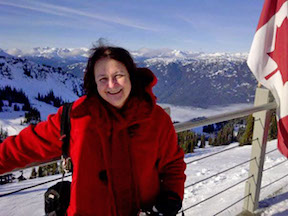selections in the Norton Anthology of Theory and Criticism
During what period was this essay written? How old was Hughes at the time of its composition?
What does Langston Hughes see as the mountain which stands in the way of black literary expression? (urge toward whiteness on the part of black artists, 1313)
What two classes of black people does he describe? What are the goals and interests of the more "respectable" black people? Of "the people"? What is the attitude of the latter towad the "negro artist"? (1314, mostly ignore him but are not ashamed of him)
What kind of religion do these latter favor? (1314, Their joy runs, bang! into ecstasy. Their religion soars to a shout.")
What are some topics available to the black artist? (black/white relations, cmp. The Ways of White Folks, 1314; black art, humor and music, esp. jazz)
When is the black artist usually recognized by his peers? (after the white world has begun to patronize him/her, 1315)
The "young colored writer" whom his fellow Negroes patronize with a dinner to which his mother is not invited was Hughes himself. Why do you think he chooses not to mention his name? (1315)
What are some restraints on the black artist tacitly imposed by white demands? By the demands of the "respectable" black people?
In the face of these pressures, what should the "negro artist" do? What art forms will model this task? (1316, should model the beauty of the soul-world of Negroes, as their folk music has done; turn to music, art and dance as powerful forms of black artistic expression)
What seems Hughes's attitude toward his fellow African-American writers? (1316)
On what grounds have others criticized his literary works? (1316)
What should be the goal of "negro artists" at the present time? (should express selves without fear or shame, 1317; should seek to change the attitude of black people towards themselves from self-contempt to pride)
How should they respond to potential criticism or approval from white critics? From black critics?
For whom then do they write, in Hughes's view?
What does it mean in this context to say that "negro artists" must stand on the top of the mountain? Has the meaning of the metaphor of the mountain changed?
What do you think would have been new and courageous about Hughes's views in 1926?
Are aspects of this essay prophetic?
Henry Louis Gates, Jr., "Talking Black," in Critical Signs of the Times
When was this essay written? How may its different emphases from Hughes's "The Negro Artist and the Racial Mountain" reflect changes in the situation of African-Americans since 1926?
What are some parallel concerns between the two essays? What problems haven't changed?
Who is Gates's implied audience? How can you tell?
What does Gates believe (in 1988, at least) to be the goal of African-American critics? What should be their relationship to "Western critical theory"? How may these be inflected by specifically African or African-American traditions?
Will these two traditions modify each other? What do you think of this idea? Would Langston Hughes have agreed?
In what context does Gates cite the example of Alexander Crummell? What were the latter's views? How would he have answered the question of what should be the proper language of black literary criticism? (2477)
What evidence does Gates give for his claim that past critical schools have been racist? (2429)
What should be the goal of current-day African-American critics and their allies? (to present a sophisticated reading of texts, 2430)
What should be their relationship to the black vernacular? (2431) What language does Gates himself use for this essay, and do you think this is appropriate?
What final critical goal does he call for? (must redefine theory from within our own black culture, 2432; must test the secrets of a black discursive universe)
How can this be done? Is this a task in which white critics may share?
